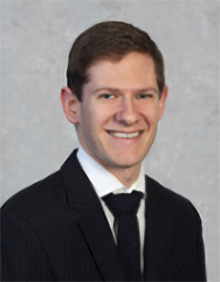Prabhjot (Jyoti) Grewal, MD

Jieun (Ellie) Kang, MD

The McGaw Medical Center of Northwestern University offers a one-year, ACGME-accredited Vascular Neurology Fellowship. The mission of the Vascular Neurology fellowship program is to provide outstanding clinical and research training in stroke medicine to prepare graduates for independent practice in this subspecialty. We strive to be a transforming healing force in the many surrounding communities that we serve by promoting optimal vascular health, connecting social needs and health inequalities, and by providing high quality, personalized vascular neurology services.
Fellows acquire a comprehensive educational experience. Clinical rotations include the primary stroke service, stroke consult service, telestroke service, neurocritical care unit, and vascular neurology clinic. In addition, fellows gain expertise in neurosonology (TCD lab), post-stroke rehabilitation (SRAL), and have access to a wealth of structured electives (including medical subspecialties such as hematology and cardiology). Fellows participate in a strong didactic program including journal clubs, invited lectures, multidisciplinary clinical case conferences, and quality improvement initiatives.
In addition to outstanding clinical training, our program provides many opportunities for fellows to engage in scholarly activity and tailor their experience. They have opportunities for mentored basic/clinical/translational research with members of the Neurology Department and faculty across Northwestern. Furthermore, they have opportunities to participate in a wide range of clinical trials that span from acute stroke to rehabilitation. They form part of the Stroke Quality Improvement Committee and may participate in QI and Patient Safety projects under faculty supervision.
Stroke & Vascular Neurology Division
Our Fellows may also further develop their skills in medical education through membership in the Feinberg Academy of Medical Educators (FAME). Members and non-members are invited to attend FAME events, which include lectures on innovations in medical education, workshops on advancing their own scholarship and educational practices, and networking socials.
Fellows are encouraged to participate in ongoing clinical and translational research or to initiate new projects. The goal will be to gain research experience and ideally to present at one or more national meetings and publish in a peer-reviewed journal.
There are opportunities available to pursue an additional research fellowship year.
The interests of our faculty include:
NMH is a Joint Commission certified Comprehensive Stroke Center and is the highest ranked hospital in Illinois and the Chicago metropolitan area. The Departments of Neurology and Neurological Surgery rank in the top 10 hospitals nationwide according to USWNR.
The breadth of cases presenting to Northwestern span a wide spectrum of cerebrovascular disease from acute ischemic stroke, transient ischemic attack, subarachnoid hemorrhage, intracerebral hemorrhage, intracranial aneurysms, arteriovenous malformations, carotid and intracranial stenosis and intersect with complex conditions such as atrial fibrillation, cardiovascular surgery, malignancy, hematologic disorders and inherited or genetic rare disorders. Our Telestroke Program provides acute consultative services across the region with a spoke-and-hub model. There are over 800 stroke and related conditions treated per year at NMH and over 1,500 outpatient visits for stroke in the Northwestern Medical Group stroke clinic. These clinical opportunities provide ample exposure to vascular neurology over a one-year training program. Our Fellows form part of the Stroke Quality Improvement Committee and may participate in QI and Patient Safety projects under faculty supervision.
Applicants must be board-certified or board-eligible in neurology, neurosurgery or endovascular surgery related to cerebrovascular disease and must demonstrate interest in pursuing a career in vascular neurology.
Residents are selected for the fellowship from eligible applicants based upon their preparedness, ability, aptitude, academic credentials, communication skills and personal qualities. No discrimination is made based upon sex, race, age, religion, color, national origin, disability or veteran status. Approximately half of the eligible applicants are invited for personal interviews.
The program participates in the AAMC’s Electronic Residency Application Service (ERAS).
Required documents include:
Interviews will consist of meeting with our faculty and key stroke team members. Specific requests may be made for select candidates interested in pursuing specific research careers. Interviewers rate each applicant independently.
A stroke faculty meeting is held after interviews, at which time applicant ratings are reviewed. Decisions regarding appointments to the fellowship are then made by consensus.
Housestaff training through McGaw Medical Center of Northwestern University provides diverse and challenging clinical experiences and world-class education located in the heart of the beautiful city of Chicago.




"I will forever be thankful for my training at Northwestern’s Vascular Neurology Fellowship. There was an optimal balance between clinically rigorous rotations and the time/resources to pursue high-impact research and other academic projects. I had outstanding mentors in both the Vascular Neurology and Neurocritical Care Divisions, many of whom I continue to collaborate with after fellowship. Additionally, Chicago is truly a city with something for everyone. I had a blast!"
— Brian Stamm, Class of 2023
Fellowship Program Director, Vascular Neurology
Fellowship Coordinator (Program Assistant 4)
We offer a wide range of resources, mentorship opportunities and formal training programs to help our residents and fellows excel as physician-scientists. Explore all of the resources and hear from housestaff who are making research a major part of their career development plans.
VISIT THE STARZL ACADEMY SITE